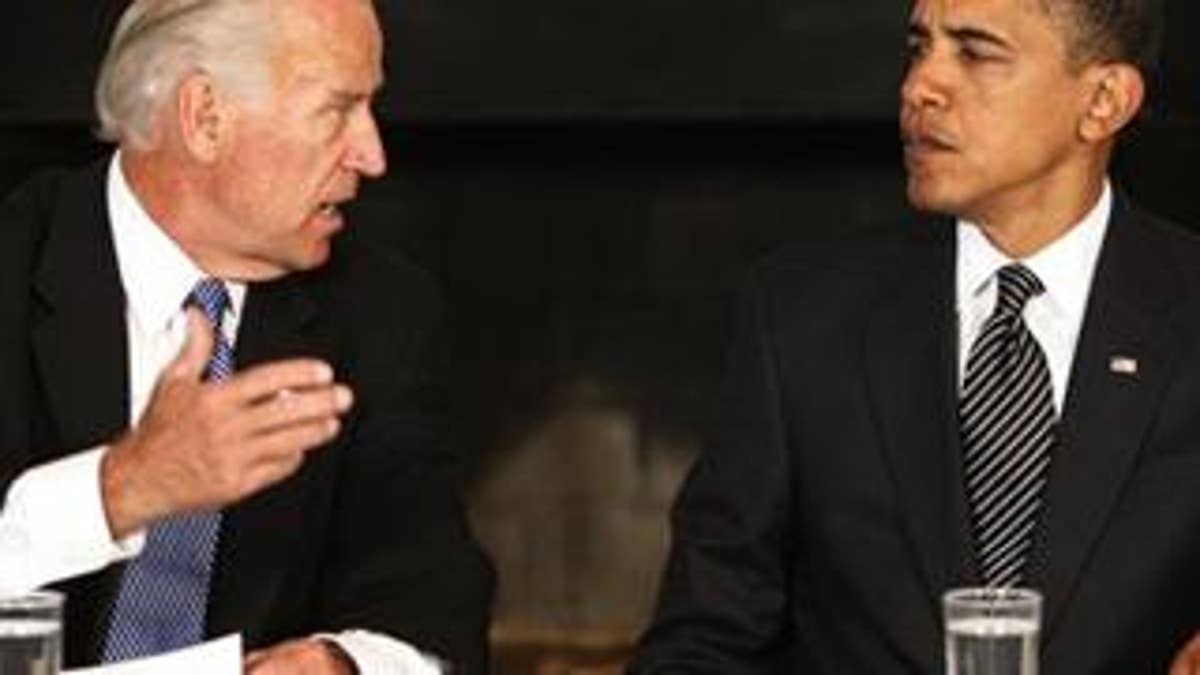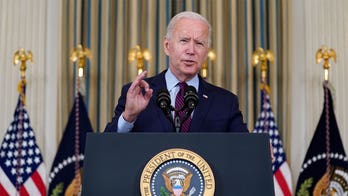
As President Obama deliberates over whether to send tens of thousands more U.S. troops to Afghanistan, one name is emerging as the hope of the anti-war left and enjoying somewhat of a public image rehabilitation.
It's all about Joe.
Vice President Joe Biden has been the leading skeptic in the administration toward Gen. Stanley McChrystal's call for escalating the war with 40,000 more troops. While the commander of U.S. and NATO troops in Afghanistan has had the public support of top military voices like Joint Chiefs Chairman Adm. Mike Mullen, Biden has won many officials over with his argument that the strategy should focus more on taking out top Al Qaeda targets in Pakistan with drones and Special Forces and shifting security responsibility to the Afghans.
With his cynicism, Biden is being cast as the wise man of foreign policy -- a far cry from the gaffe-prone uncle image he had, even seemingly within the administration, after Inauguration Day. He has emerged as the anti-Cheney, a highly influential adviser to the president arguing for military restraint rather than military escalation.
"Why Joe Is No Joke," blares the cover of Newsweek. The centerpiece article explains how Biden has firmed up his status in the White House, and how his "once lonesome position now has high-level support" regarding Afghanistan. The article calls Biden a "truth teller" and a "political realist" who is a force to be reckoned with.
A New York Times article Wednesday portrayed Biden the same way, describing him as the "in-house pessimist" who has gradually won backing from within the administration.
But the attention has brought with it added pressure, particularly from the left.
The Huffington Post's Arianna Huffington wrote on her Web site Wednesday that Biden should, in a symbolic stand against the war, resign if President Obama decides to escalate the U.S. presence in Afghanistan.
"Though it would be a crowning moment in a distinguished career, such an act of courage would likely be only the beginning. Biden would then become the natural leader of the movement to wind down this disastrous war and focus on the real dangers in Pakistan," Huffington wrote.
Biden is speaking for a broad swath of the Democratic Party in expressing to Obama his skepticism toward the war. Polls show public support for the war is at startlingly low levels, and a number of Democrats have voiced support for a more restricted U.S. involvement in the region.
"One of the central problems in Afghanistan right now is you have a government that is corrupt and incompetent," Rep. Jim McGovern, D-Mass., said on ABC's "This Week." If you don't have good governance at the center of all of this, you can put all the troops you want in there, you can invest all the money you want in there, and it won't make any difference."
He said "enlarging our military footprint" would be "counterproductive" and "a mistake."
But Biden may end up facing the scorn of anti-war advocates like Huffington in the end.
Conservative columnist Michelle Malkin said an expectation that Obama will approve more troops has triggered discontent on the left.
"[Biden] has painted himself as the heroic skeptic on the Afghanistan war, and now it seems that we may be poised for Obama to finally listen to General McChrystal," she told FOX News.
British media reported this week that Obama has already decided to send up to 45,000 additional troops to Afghanistan, though the White House denies it.
Publicly, White House Press Secretary Robert Gibbs said Obama is "several weeks" away from a decision.
"We have finished at the broad landscape level," Gibbs said. "We are in the decision-making phase now," he told FOX News.
Biden's skepticism has its skeptics as well.
California Sen. Dianne Feinstein, Democratic chairwoman of the Senate Intelligence Committee, said alongside McGovern Sunday that the counterinsurgency strategy pursued by McChrystal is "really critical." She said the American people don't have the stomach to stay in Afghanistan for another 10 years, but that the mission there is in "serious jeopardy" and Obama has an obligation to follow his commander's advice.
"I don't know how you put somebody in who was as crackerjack as General McChrystal, who gives the president very solid recommendations, and not take those recommendations if you're not going to pull out," Feinstein said.
Given that Biden opposed the troop surge in Iraq -- widely credited with creating the stability that is allowing the U.S. to withdraw -- even after voting for the Iraq war in 2003, some question why Biden's advice is given so much weight.
"When was the last time Biden was right about anything?" military reporter Tom Ricks wrote on his blog on the Foreign Policy magazine site last month, a dose of heavy skepticism noted in the Times piece Wednesday.




